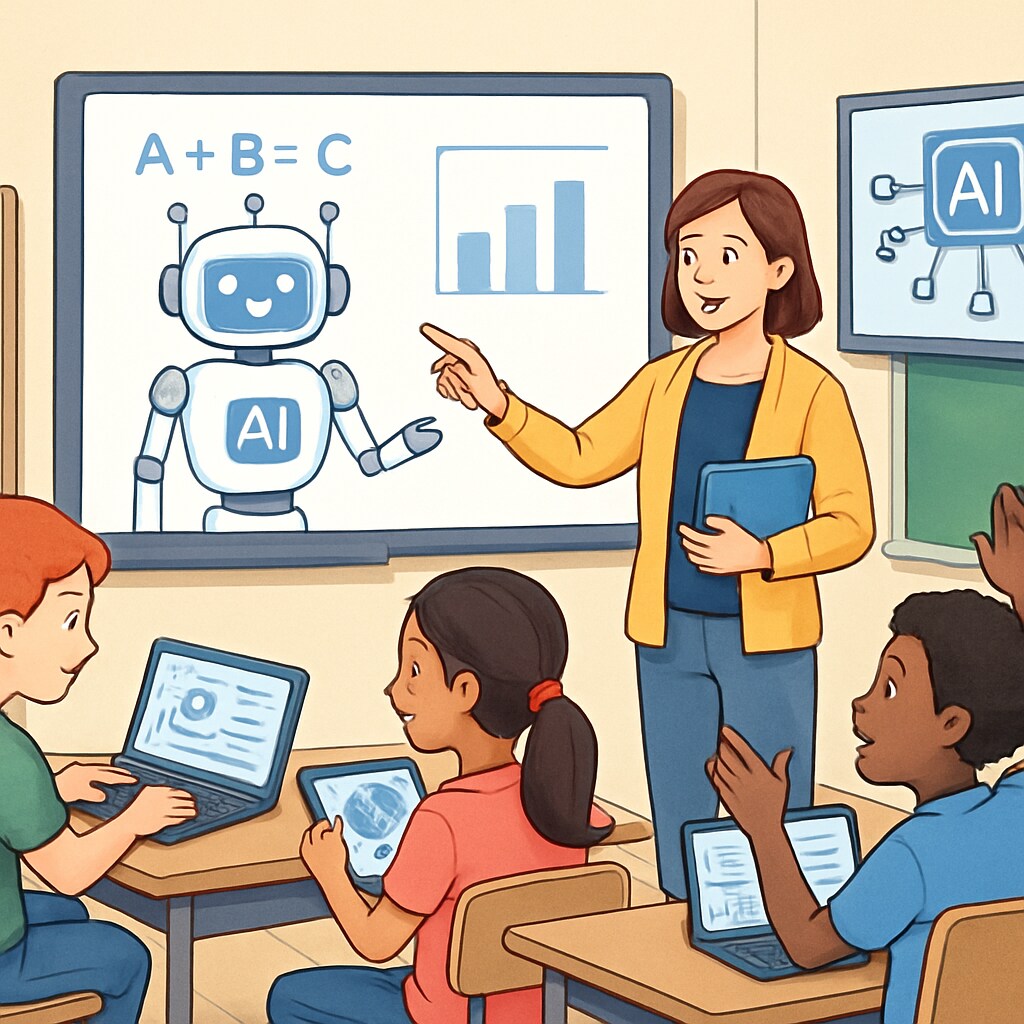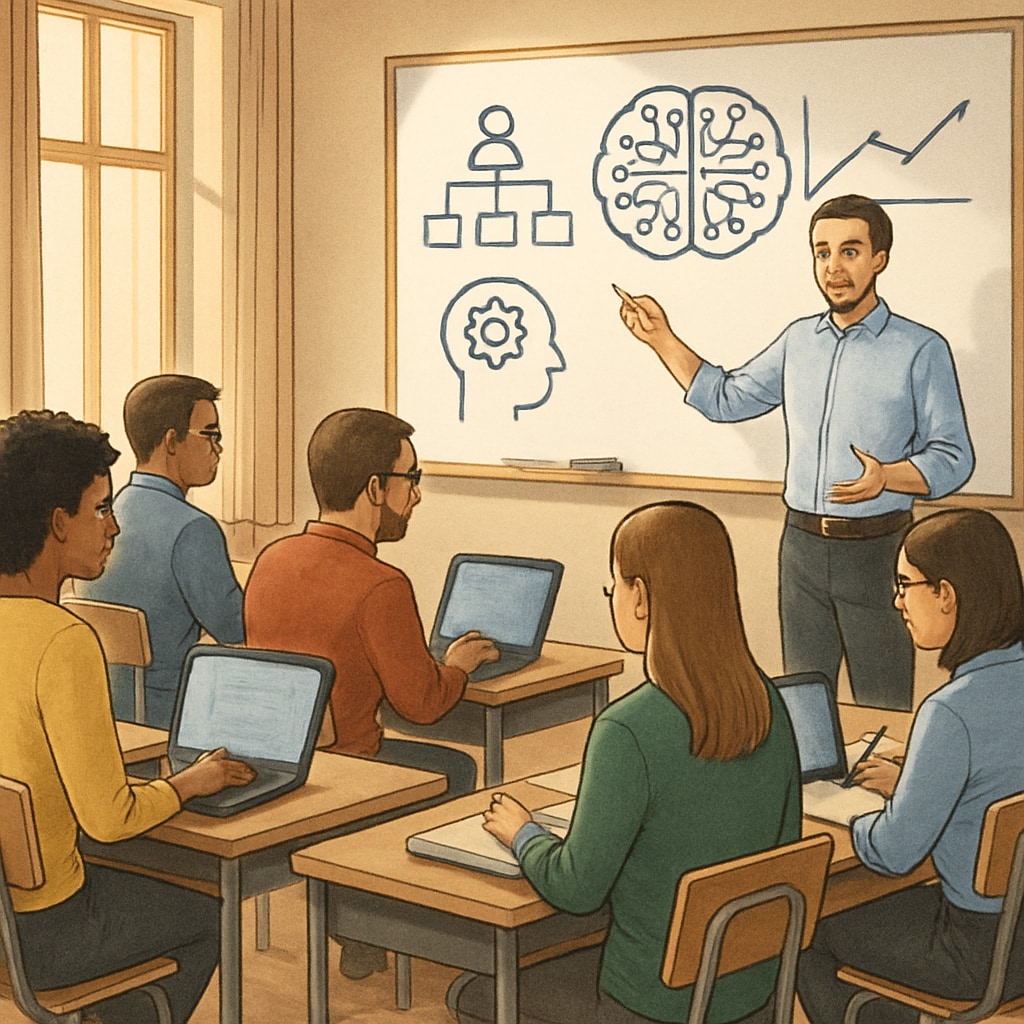As AI education applications gain momentum, the role of teachers is undergoing a profound transformation. While artificial intelligence (AI) offers promising benefits to education, its rapid adoption also raises questions about teacher value, technological adaptation, and the future of compensation in the teaching profession. As educators navigate this evolving landscape, it becomes crucial to explore how they can assert their significance and advocate for fair treatment in a world increasingly influenced by AI.

The Role of Teachers in the Age of AI
Artificial intelligence is revolutionizing how students learn and how classrooms operate. Tools like AI-driven tutoring systems, automated grading, and personalized learning platforms are providing efficiencies and customization that were unimaginable a few decades ago. However, these advancements can inadvertently overshadow the unique, human-centric contributions of teachers.
Teachers are not just information providers; they are mentors, role models, and emotional anchors for students. While AI can process vast amounts of data to tailor educational content, it cannot replicate the empathy, intuition, and moral guidance that educators provide. The challenge lies in ensuring that the increasing reliance on AI does not diminish the perceived value of these irreplaceable qualities.
How AI Is Reshaping Teacher Responsibilities
As AI takes over repetitive and administrative tasks, teachers are finding themselves free to focus on higher-order responsibilities. For example, automated grading systems save time, allowing educators to concentrate on curriculum development and personalized student engagement.
However, this shift also demands that teachers adapt to new technological tools and integrate them into their teaching methods. Professional development is becoming essential, as educators must learn to collaborate with AI, interpret its data, and use it to enhance student outcomes.
Yet, this adaptation comes with its own set of challenges. Teachers must not only master new technologies but also advocate for their role as indispensable contributors to education. The ability to balance AI’s capabilities with human expertise will determine the success of this transition.
AI and Its Influence on Teacher Compensation
One of the most pressing concerns is how AI might impact teacher salaries. As AI systems become more cost-effective and efficient, there is a risk that educational institutions may undervalue human contributions and prioritize technology over personnel. For instance, a school might invest in AI software to reduce the need for certain teaching roles, potentially putting downward pressure on salaries.
On the other hand, teachers who effectively integrate AI into their classrooms and demonstrate their continued relevance may find opportunities for increased compensation. By acquiring skills in educational technology and showcasing their ability to amplify AI’s potential, educators can position themselves as indispensable assets.
It is crucial for policymakers and educational leaders to recognize that AI should complement—not replace—teachers. Fair compensation must reflect not only the technical skills required to work alongside AI but also the irreplaceable human qualities that AI cannot replicate.

Strategies for Teachers to Thrive in an AI-Driven World
To ensure that their value is recognized and rewarded, teachers can adopt several strategies:
- Invest in Professional Development: Learn how to use AI tools effectively and stay updated on emerging technologies in education.
- Emphasize Human-Centric Skills: Highlight the unique qualities that differentiate teachers from AI, such as emotional intelligence, creativity, and leadership.
- Advocate for Fair Policies: Work with unions and educational organizations to ensure that teacher compensation reflects both technological and human contributions.
- Collaborate with AI: Use AI as a partner to enhance teaching methods and improve student outcomes, rather than viewing it as a competitor.
By taking these steps, educators can safeguard their professional value and ensure that their roles remain indispensable in the AI era.
The Path Forward: Balancing Technology and Humanity
As we embrace the possibilities of AI in education, the challenge will be to strike a balance between technological efficiency and human connection. Teachers must not only adapt to new tools but also advocate for the recognition of their enduring value. Policymakers, school administrators, and society at large must work together to ensure that education remains a collaborative effort between humans and machines.
In conclusion, the rise of AI in education presents both opportunities and challenges. While AI can enhance learning experiences, it cannot replace the emotional depth and moral guidance that teachers bring to the classroom. By adapting to technological changes and asserting their unique contributions, educators can redefine their roles and secure the respect and compensation they deserve.
Readability guidance: This article uses short paragraphs and lists to improve clarity. Passive voice is minimized, and transition words are incorporated to ensure smooth flow. The content emphasizes the coexistence of AI and human skills, encouraging teachers to embrace change while advocating for their value.


